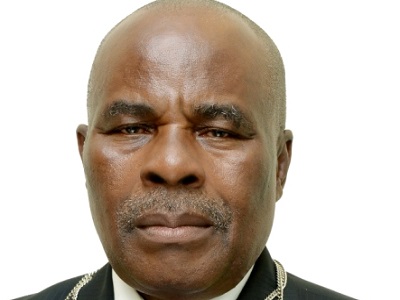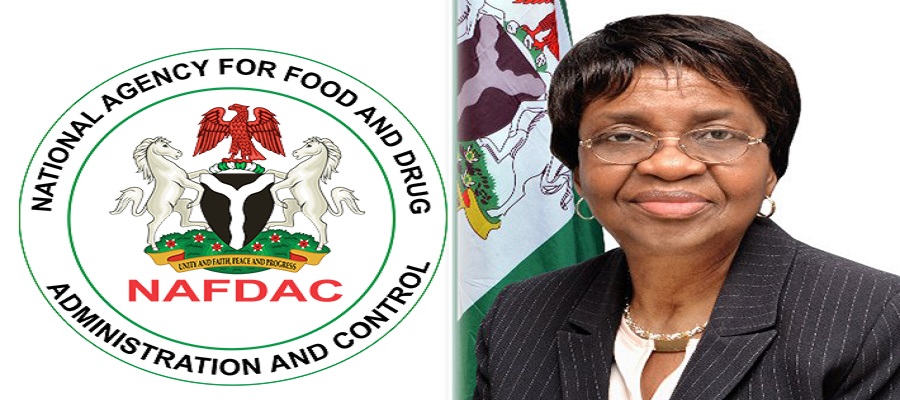News
NCS Unhappy with Exclusion of IT Professionals from Nat Confab

Nigeria Computer Society (NCS) has again decried the exclusion of IT professionals from the list of delegates to the forthcoming national conference, describing the action as marginalization of the group by the government.
NCS said that the discussions on the future of the nation cannot be complete without IT applications.
Professor David Adewumi, president of the Society, told Nigeria CommunicationsWeek that the exclusion of IT professionals should be a source of worry to every right thinking Nigerian.
He said it was puzzling that IT professionals are missing from the list which has students and market women.
Adewunmi said: “On the national conference, our perception in NCS is that the exclusion of IT professionals in the composition of delegates is a clear indication of marginalization of the industry by the government. That is why they never thought of including the all important agents of change; the present and future drivers of the economy.
“No gathering in the 21st Century, particularly those aiming at development and improvement of the lives of individuals, which will not involve the IT, technology and the professionals. I wouldn’t know the thinking in the government that made them to push the professionals to the background. We are still insisting that we should be part of the gathering; so that we can add impetus to the gathering, by looking at building IT for our future existence”.
The NCS President questioned the rationale behind the inclusion selected few professional bodies while ditching the most viable sector to a humdrum background.
“They involved professionals drawn from the Institute of Chartered Accountants of Nigeria (ICAN), others from among architectural body in the country. Students and market women made part of the list. We are using this medium to call on President Goodluck Jonathan to reconsider its position so that IT professionals can be represented on the national conference. We know that with IT being reflected on the national course a number of innovations and usage will reflect in building the future we crave for as a unified people,” he said.
“Should IT professionals not being recognized or engaged on the discussion, the implication for the country will not be palatable, in the sense that no country can survive today without a working IT ecosystem. I am sure the intention of the government is to ensure that all facet of the economy are improved upon. The improvement entails inter-tribal relationships, inter-ethnic and even inter-governmental, and then it should be inclusive. If we want to involve everybody without the IT, the implication may assume than what we are seeing today,” he argued.
News
NAFDAC Destroys over N1 Trillion Fake Drugs in Anambra

National Agency for Food and Drug Administration and Control (NAFDAC) has incinerated counterfeit, substandard, and fake pharmaceutical products valued at over N1trn at the Anambra State Waste Management Authority Dump Site in Agu Awka, Anambra State.

Mojisola Adeyeye, director general, NAFDAC
The haul, including banned substances like Analgin and controlled drugs such as Tramadol 225mg, was confiscated during a month-long enforcement operation targeting major drug markets.
The destruction which happened on Friday, was overseen by Martins Iluyomade, South-East Zonal Director, NAFDAC, representing Mojisola Adeyeye, director general, followed raids on Onitsha Bridge Head Drug Market (Ogbu-Ogu) and Ekumi/Tenant Road drug market in Aba.
She said, “We have come to realise that the time has come to put an end to the circulation of substandard medicines in Nigeria,”
The director also linked the proliferation of such drugs into society, to national insecurity.
She said, “The volume that we found during this exercise is more than enough to destabilise a country,”
According to Adeyeye, the operation uncovered an array of counterfeit goods, with Adeyeye highlighting the seizureMojisola Adeyeye of bulk volumes of narcotics and other medicines that are not approved because of their effect.
She credited the action with saving millions of lives and urged the public to report suspicious products, saying, “When they see something, they should say something.”
Mike Ozoemanam, managing director, Anambra State Waste Management Authority, representing Governor Chukwuma Soludo, praised NAFDAC’s efforts.
He said, “The governor took the bull by the horns because we saw the correlation between the fake drugs and the effect on our youths. We do not want it in Anambra State.”
The agency also commended the media’s role in the fight against fake drugs, calling for continued public support.
News
Bolt Shares the Spirit of Ramadan with Kano Drivers-Partners

Bolt, the leading ride-hailing platform, on Thursday, 19th of March hosted an Iftar gathering in Kano to bring together Muslim drivers during the holy month of Ramadan.

The event was not only an opportunity to share a meal but also served as a platform for open dialogue, feedback exchange, and community building within the Bolt driver network.
The Iftar event, held in recognition of the significance of Ramadan, reinforced Bolt’s commitment to supporting its driver-partners and fostering inclusivity across all communities.
The gathering provided an environment for drivers to voice their concerns, share their experiences, and engage directly with the Bolt team in a collaborative discussion about improving their experience on the platform.
Speaking during the event, Osi Oguah, the General Manager for Bolt Nigeria said: “At Bolt, we recognize the importance of creating a supportive and inclusive environment for our driver-partners.
“This Iftar event was more than just a meal, it was a chance to connect, listen, and understand the challenges and needs of our drivers in Kano. We appreciate their dedication, especially during this sacred period of Ramadan.”
Drivers in attendance expressed their appreciation for the initiative, highlighting the sense of belonging and recognition the event fostered.
Many also welcomed the opportunity to discuss ways to improve their overall experience on the Bolt platform, making it a productive and meaningful engagement for all participants.
Nura Muhammed, a driver-partner said: “We want to say thank you to Bolt for this initiative, if my knowledge serves me right, this is the first time a ride-hailing company will organize such an event in Kano.
“This event has also made it possible for us to share some feedback to them physically and we drivers mostly get to connect through our online platform but today, we’re able to meet physically, mingle and exchange pleasantries”
Bolt remains committed to strengthening driver engagement and well-being, and this Iftar gathering is part of a broader effort to continuously support and empower driver-partners across Nigeria.
News
FG Invests N2.5Bn in Satellite Surveillance System to Revolutionise Mining Sector

Federal government has unveiled N2.5 billion Satellite Surveillance System aimed at revolutionising the mining sector by boosting efficiency, improving safety measures, and fostering economic growth.

Dr. Olugbenga Oyewole, managing director, MikyWay Visuals Limited, detailed how the satellite technology will transform Nigeria’s mining landscape in an interview with Voice of Nigeria,
Oyewole, who represents the commercial wing of the National Space Research and Development Agency (NASRDA), the body responsible for implementing the satellite infrastructure, described MikyWay Visuals Limited as a “pseudo-government company,” highlighting its ties with the government through NASRDA.
“By using satellite data, we are able to monitor, assess, and provide actionable insights to help improve Nigeria’s mining sector,” he noted.
He said the key component of the satellite monitoring system is the creation of a comprehensive mineral map of Nigeria, which will outline the locations of various mineral deposits across the country, “by integrating satellite data with mining licenses issued by the Ministry of Solid Minerals, inspectors can easily identify illegal mining activities and ensure compliance with regulations.”
The Managing Director further explained that miners will be equipped with Radio Frequency Identification (RFID), tagged ID cards, which will enable authorities to verify the legitimacy of mining operations.
He noted that the satellite surveillance also serves a crucial safety function by assessing the integrity of mining sites.
“If a mine is at risk of collapse, the technology will trigger early warnings, allowing authorities to evacuate workers and prevent disasters.
“Satellite data gives us an overview of the entire country, and it doesn’t forget anything,” he said.
Oyewole stated that the system will track the movement of mined materials, process taxes and royalties, and generate QR codes that will facilitate the traceability of minerals as they are transported across the country.
“When customs or law enforcement encounter a truck carrying minerals, they can scan the QR code to verify the authenticity and trace the mineral back to its source,” he explained.
The first phase of the project will include the implementation of these technologies, while the second phase will focus on deploying the electronic reporting platform.
“The goal is to optimise revenue, enhance safety, and ensure that Nigeria’s mining industry operates responsibly and sustainably.”
Oyewole emphasised the principle of “working smart” in operations, noting that targeted strategies can significantly enhance efficiency.
For instance, rather than monitoring every border for illegal exports, customs officials can focus on specific routes, optimising resources.
This smart approach also extends to the mining sector, where inspectors can be directed to high-activity areas, minimising unnecessary manpower.
Oyewole explained that in cases where real-time data is needed, “drones connected to satellite communication are employed for live monitoring.”
Citing the ability to provide live footage of mining operations and share it instantly with government officials, allowing them to direct their teams efficiently.
He also touched on the security of satellite surveillance data, emphasising that access would be restricted on a “need-to-know” basis.
Mining inspectors would only have access to information relevant to their operations, while sensitive data would be available to select agencies like the Ministry of Mines and Steel Development, National Security Adviser (NSA), and the Department of State Services (DSS).
In addition, the technology allows for the review of historical data, which can be crucial for tracking unpaid revenues or past illegal activities.
On the topic of satellite and security data, Oyewole mentioned that the technology being used is beyond reproach.
“You can’t deceive anyone,” he said, referring to spectrophotometers and RFID chips that ensure the authenticity of materials being transported.
“If you are carrying in a truck, maybe you are carrying maybe some gold sand or something, and you get to the customs or anybody, or you meet the mining marshal, and you tell them that this is a bentonite, I’m going to just apply for them to drill pretending as if it’s ordinary sand.
“The spectrophotometer, once you point it at it, it will tell you exactly what and what are in that thing that you are carrying.”
In addressing concerns about the potential for corruption or compromise, Oyewole was confident that the transparency of the technology would eliminate such risks.
“Even if I, as the managing director, were to compromise, the ministry, NSA, or DSS would have access to the same data, making any attempts at deceit impossible.”
Oyewole also advocated for the establishment of refineries in Nigeria to further process minerals, such as gold, to international standards.
By doing so, he suggested, Nigeria could ensure the traceability of its minerals and maximise their economic value.
The government’s proactive approach to creating a traceable and responsible mining industry, he added, will be a key factor in boosting Nigeria’s global competitiveness in the sector.
He believes Nigeria embracing geospatial technology, is essential to effective national governance.
“The difference between Nigeria and America, lies in the use of technology and data agency collaboration. If we leverage these properly, Nigeria can emerge as a global leader, just as America has and we are excited, and this will not be another abandoned project,” he concluded.

 Broadcasting2 days ago
Broadcasting2 days agoPublic Outrage, Legal Threats as Abuja Council Demands N500, 000 as TV Levy

 E-Financial2 days ago
E-Financial2 days agoFIRS Partners Flutterwave for Digital Payment Collection

 Telecom2 days ago
Telecom2 days agoNigeria Charts New Course to Bridge Gender Digital Divide at UN’s CSW69

 General News2 days ago
General News2 days agoNIN Enrolment Hits 117.3m – NIMC

 E-Financial2 days ago
E-Financial2 days agoZuriel Oduwole, Sterling One Foundation, and Sanwo-Olu Champion Gender Equality and Youth Empowerment

 General News1 day ago
General News1 day agoNigeria, Kenya among Nations Running out of HIV Drugs – WHO

 E-Financial2 days ago
E-Financial2 days agoBOI Launches N10Bn GLOW Fund for Female Entrepreneurs

 News1 day ago
News1 day agoNAFDAC Destroys over N1 Trillion Fake Drugs in Anambra

























